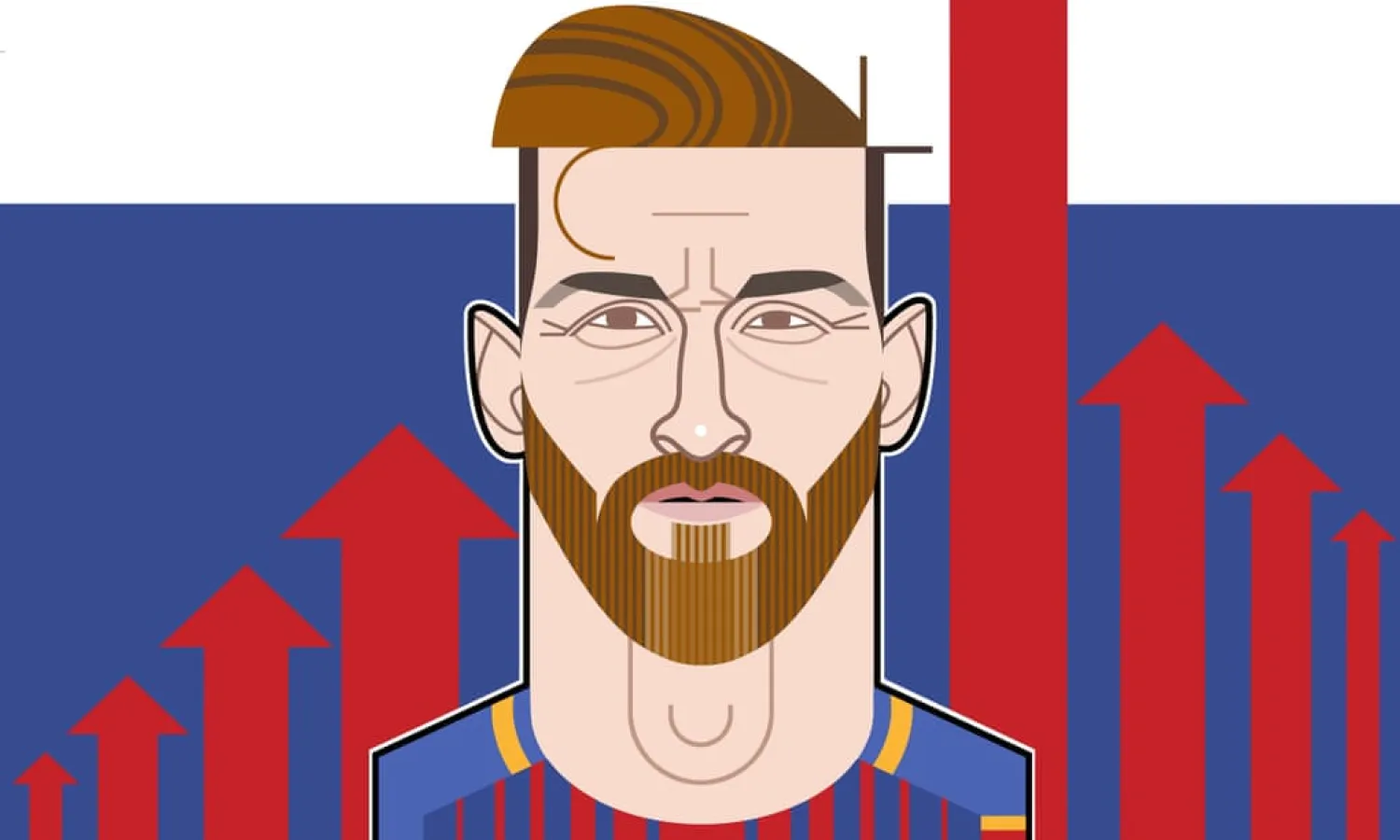There was some consolation this week for anyone feeling a little maxed-out by the relentless individual brilliance of Lionel Messi. We have at least found something he isn’t good at on a football pitch. It turns out Messi isn’t very good at punching Fabinho in the head.
Frankly, he’s terrible at it. The TV replays showed Messi doing something along these lines at the Camp Nou just before that mind-bending free-kick goal. Fabinho looked stunned at the time, but perhaps he was just shocked by the nature of the blow, a slappy, wristy thing executed with laughably poor technique, no follow through, no turn of the hips to engage the larger muscles, the kind of punch a cornered Jacob Rees-Mogg might throw fighting his way through an angry mob of undersized gingerbread men.
Other than that, well, it was more of the same from Messi against Liverpool. Unclosing like a hand, he gives forever. I make no apology for writing about him again here. Firstly, because Messi’s talent is endlessly divisible. You never get to the bottom of it. It is always surprising.
And secondly because it feels like something else is happening right now, too. After the Liverpool game Jürgen Klopp looked haggard, cap pulled down, tracksuit rumpled. Understandably so, as it must have cut him to the heart. Liverpool had played well. They didn’t shrink or lose track of the plan. They made chances and forced mistakes.
Everything was going fine, the fruits of a wonderfully patient piece of team-building all in evidence. Right up until the moment they lost 3-0 because one person decided to bend the night and the entire surrounding story to his own will.
Increasingly this all feels just a little bit strange, this one-man will to power; as though Messi is entering some other space beyond normal notions of sporting exceptionalism. We’ve had 15 years of this too, 15 years of interfering with history, a lesson in the way a single personality can affect so many other strands.
Step back and we are living in a kind of Messi-bizarro word, a Messi timeline. It is astonishing how many things flow from the brilliant accident of his talent. In a way this is a football version of the Great Man Theory, the idea that history is changed by individuals doing things, not by wider structural forces. Events are not inevitable. Instead talent and will intervene.
This is what Messi has done to modern football, our own Doctor Manhattan out there remaking the century in his own image. It goes right down to the roots of the sport. Watch a kids’ park game and you still hear dads shouting things like “Keep it!” And “Send it short!” and “Nigel, pressurise the transitions!” urging their under-nines to play more like something that is basically still Messi’s Barcelona.
Even the previously luddite English Football Association has a team and a system whose so-called “DNA” is Cruyffian, but given shape and legitimacy by Messi’s execution. That Barcelona model has won: history records this as fact. And yet by any cold application of facts it is Messi who made the details work, who vindicated the theory, who provided some brilliant teammates with an unanswerable cutting edge. Just ask Pep Guardiola how many Champions League finals he’s reached without him.
But then Messi also made Guardiola – just as Guardiola made him in turn, to a degree – or at least made Guardiola’s influence into an absolute thing. Even the tactical positions Guardiola made work for Messi, the false nine, the roving inside forward, have become a dominant methodology in every part of football from professional teams to academies.
Take Messi away from this and the fates change. Football itself would be different without Messi: closer to a game of team-hustle and athleticism, coloured less by individual flair.
Manchester City would be different, Pep’s star, his authority less all-pervasive, his presence seen as less of a catch-all plan. In a non-Messi timeline Manchester United might have won at least one more Champions League. David Moyes doesn’t get that job. José Mourinho takes a different turn into something other than the bruised and toxic defensive ultra, bent on defeating the possession game.
Similarly football’s obsession with star culture and individualism is in part a function of Messi-ism. We live in an age of GOATS, trailed by a global cloud of social media fandom, those who follow an individual, obsessing minutely over these lighted shapes on a screen. Messi makes this make sense, the one authentic genius in the world’s most popular pastime.
In this non-Messi timeline even Cristiano Ronaldo (who is also very good) doesn’t exist as CR7, isn’t propelled to a state of megastar equivalence by that 10-year rivalry. In some ways Messi also made Ronaldo into an icon, just as Usain Bolt made every other top sprinter richer and more famous just by giving them the chance to lose to him.
This is the wider point of the Age of Messi. No single person has such vast footprint in the modern history of any big sport – let alone the biggest one of all. There is of course an ongoing irony here. Messi the man remains a blank. He’s a bloke, an entirely everyday vessel to carry around this touch of the divine. Messi doesn’t seem to be driven by any great rapacious, vaulting ambition. He can barely even punch Fabinho in the head properly.
But this is to look for logic. As the joins begin to show a little, as the scale of his outsized talent becomes ever more striking, only one thing seems certain. This is – to a bizarrely disproportionate degree – Messi’s world. And we really are just living through it.
The Guardian Sport









